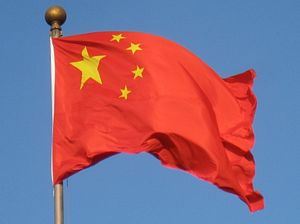Imagine if your research showed that quitting smoking is hard, and that smokers should get external help to improve their chances of quitting. Would you feel comfortable with a tobacco company contending that the only conclusion of your study is that quitting is hard (and by implication, no one should even try)?
You would probably protest that the tobacco company has passed off a modified version of your research as an accurate version, while attributing the claim to you. You would call this negligent at best, if not blatantly dishonest and irresponsible.
Last week, several Chinese online media outlets ran a Chinese translation of an article by Macquarie University Professor Bates Gill, originally published in The Diplomat. These media outlets include Chinese Communist Party organ the People’s Daily and the state-run Global Times. While the Chinese articles are presented as full translations of the original, they omit vital passages and misrepresent the key argument.
The original article has two parts. The first part outlines the reasons for U.S. allies to be skeptical of the Trump administration’s tough talk on China. These include the current lack of U.S. global leadership, its tenuous fiscal position and political dysfunction, and differing interests between Washington and its allies with respect to China. The second part calls on the Trump administration to back its tough words with deeds and renew efforts to reassure nervous allies in Asia. This could take the form, for example, of increasing focus and investment in regional diplomatic, economic, and defense initiatives.
The Chinese translation of the article only presents part one but not part two.
Why? One explanation could be the second part was thought unimportant. Another, more plausible, explanation is that the arguments for U.S. and allied action do not square with the official Chinese narrative and put China in a negative light.
This kind of selective translation raises questions about Chinese media practices, and over the long term can amplify the disconnect between how Chinese people perceive foreign views and the actual views expressed by foreigners.
At the bottom of the translated article on the Global Times website, readers are asked to vote on their emotional state after reading the piece: sadness, disdain, praise, anger, snickering, bored or shocked? About 70 percent of the respondents “snickered.” Would such a high number have done so if they read a full and accurate translation of the article?
Given the Party’s overwhelming power over China’s domestic media, the Chinese people’s perceptions of other countries are heavily influenced by Party narratives, which allows Beijing to use public opinion as a weapon during bilateral disputes. In such scenarios, moderate and dissenting voices in China could be silenced or drowned out by voices that amplify Beijing’s messages.
Media organizations should be scrutinized by the public just as these organizations scrutinize the powerful. In China, this may not be effective or possible. But at least in West we can call out media organizations, Chinese or otherwise, when they “misrepresent” public discussions that relate to China’s international relationships.
Importantly, this is not an isolated case; it sits against the background of an entrenched pattern of behavior by the Party to censor, control, and weaponize information and narratives for its own purposes. This includes deflecting criticisms, bolstering the image of the Party, and whipping up nationalist sentiments against countries and companies for perceived slights. As China’s technology and media companies become more important globally, the effects, both direct and indirect, of the Party’s information and narrative agenda will be increasingly felt around the world.
Adam Ni is a researcher at the Strategic and Defence Studies Centre, Australian National University. His main areas of interest include China’s foreign and security policy. Find him on Twitter @adam_ni.

































